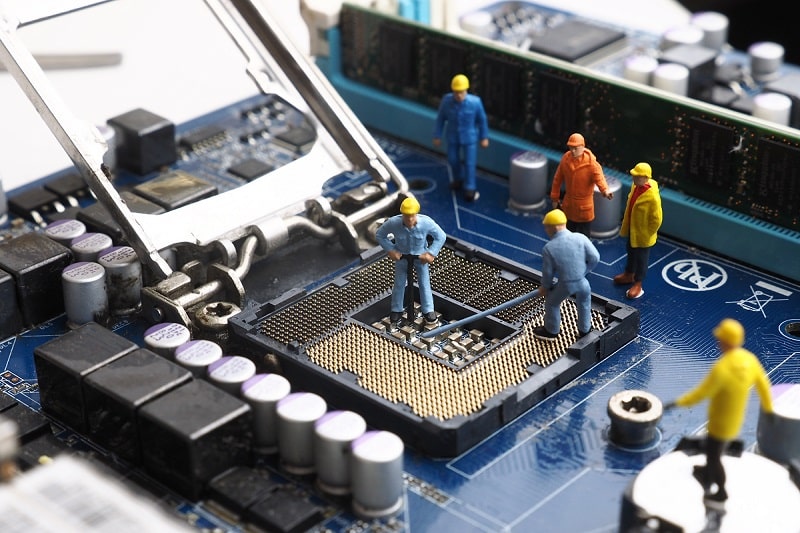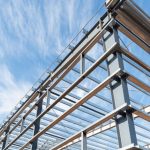Why is routine maintenance so essential for keeping systems running smoothly? The answer lies in its ability to prevent costly breakdowns and ensure that equipment continues to function correctly. Regular upkeep also helps identify potential issues before they become significant problems. Whether it’s heating, ventilation, or cooling systems, this proactive approach reduces the chances of unexpected failures.
Routine upkeep is essential for businesses relying on commercial HVAC services to maintain comfortable environments. Regular maintenance not only extends the lifespan of equipment but also helps reduce long-term expenses. By including it in the overall management strategy, businesses can ensure they run efficiently. This approach minimizes disruptions and keeps operations running smoothly.
Regular maintenance not only extends the lifespan of your systems but also ensures they operate at peak efficiency, reducing the risk of unexpected breakdowns. By scheduling routine check-ups, you can identify potential issues before they escalate into costly repairs. For those in need of professional assistance, it’s crucial to find trusted services that can provide expert care and attention to your systems. This proactive approach not only saves money in the long run but also contributes to a more sustainable and efficient operation, ultimately enhancing overall performance and reliability.
Preventing Costly Breakdowns
One primary reason for regular maintenance is to prevent unexpected and expensive breakdowns. Systems that must be maintained appropriately are more likely to experience mechanical failures, leading to costly repairs or replacements. Periodic inspections and tune-ups by skilled experts help identify potential issues before they escalate into major problems.
A well-maintained system is less likely to suffer from malfunctions, ensuring it runs smoothly and efficiently. Regular servicing can address minor wear and tear, preventing it from becoming more significant. This proactive approach saves money in the long run and reduces downtime, keeping business operations running without interruptions.
Extending Equipment Lifespan
Routine maintenance is critical in extending the lifespan of systems and equipment. Like any other machine, they are subject to wear and tear over time. Without proper care, parts can degrade, leading to a shorter operational life.
Periodic professional servicing ensures that components function correctly and any damaged parts are repaired or replaced. This ongoing care can significantly extend the equipment’s usable life, delaying the need for costly replacements. With the help of these services, businesses can maximize their return on investment and avoid the expenses associated with premature failures.
Enhancing Energy Efficiency
Energy efficiency is a growing concern for businesses seeking to reduce operational costs and minimize their environmental impact. Well-maintained systems are more energy-efficient and designed to operate optimally when all components function correctly.
When neglected, they often have to work harder to achieve the same level of performance. This increases energy consumption, higher utility bills, and a larger carbon footprint. Routine upkeep ensures they are running at peak efficiency, using the least energy to perform their functions. Businesses can reduce expenses by optimizing energy use and contributing to a more sustainable future.
Ensuring Compliance with Regulations
Many industries are subject to strict regulations regarding performance and maintenance. Failure to comply with these regulations can result in penalties, fines, or even shutdowns. Routine upkeep helps ensure compliance with industry standards and governmental regulations.
Regular inspections by professionals allow businesses to identify areas where their systems may not meet regulatory requirements and take corrective actions. This protects the company from legal issues and promotes safety and reliability in operations. Staying compliant through regular maintenance is essential for maintaining a positive reputation and avoiding costly legal consequences.
Improving System Performance
Optimal performance is vital for ensuring that businesses run efficiently. A system not performing at its best can cause delays, reduce productivity, and increase operating costs. Routine maintenance helps maintain performance by ensuring that all components work correctly and function as intended.
With regular maintenance, technicians can fine-tune the system to ensure it operates at its highest potential. This improves overall performance, reduces the risk of malfunctions, and ensures that the system can meet its demands. Enhanced performance leads to better results, whether in terms of production, comfort, or energy usage.
Identifying Potential Problems Early
Routine upkeep allows for the early detection of potential issues that could lead to more significant problems. During a maintenance check, technicians can identify minor issues such as loose connections, worn-out parts, or slight performance deviations. Addressing these minor issues early can prevent them from becoming more severe problems that could result in system failures or costly repairs.
Early detection also allows businesses to plan for repairs or replacements in advance, reducing the likelihood of sudden and unexpected costs. This proactive upkeep approach helps companies avoid potential issues, ensuring that their systems remain in good working order for extended periods.
Reducing Long-Term Costs
While routine maintenance requires an initial investment of time and money, it can result in significant cost savings in the long run. Neglecting maintenance can lead to unexpected breakdowns, increased energy consumption, and the need for premature replacements, all of which can drive up operational costs.
By investing in regular upkeep by experts, businesses can avoid these costly outcomes and extend the life of their systems. This reduces the need for expensive repairs or replacements, lowers energy bills, and minimizes the risk of sudden failures that could disrupt operations.
Routine maintenance is essential for ensuring optimal system performance. By investing in regular upkeep, such as commercial HVAC services, businesses can improve performance, reduce long-term costs, and boost reliability and safety. Ultimately, incorporating routine upkeep into operational strategies allows businesses to get the most out of their systems, ensuring smooth and efficient operations in the long run.







